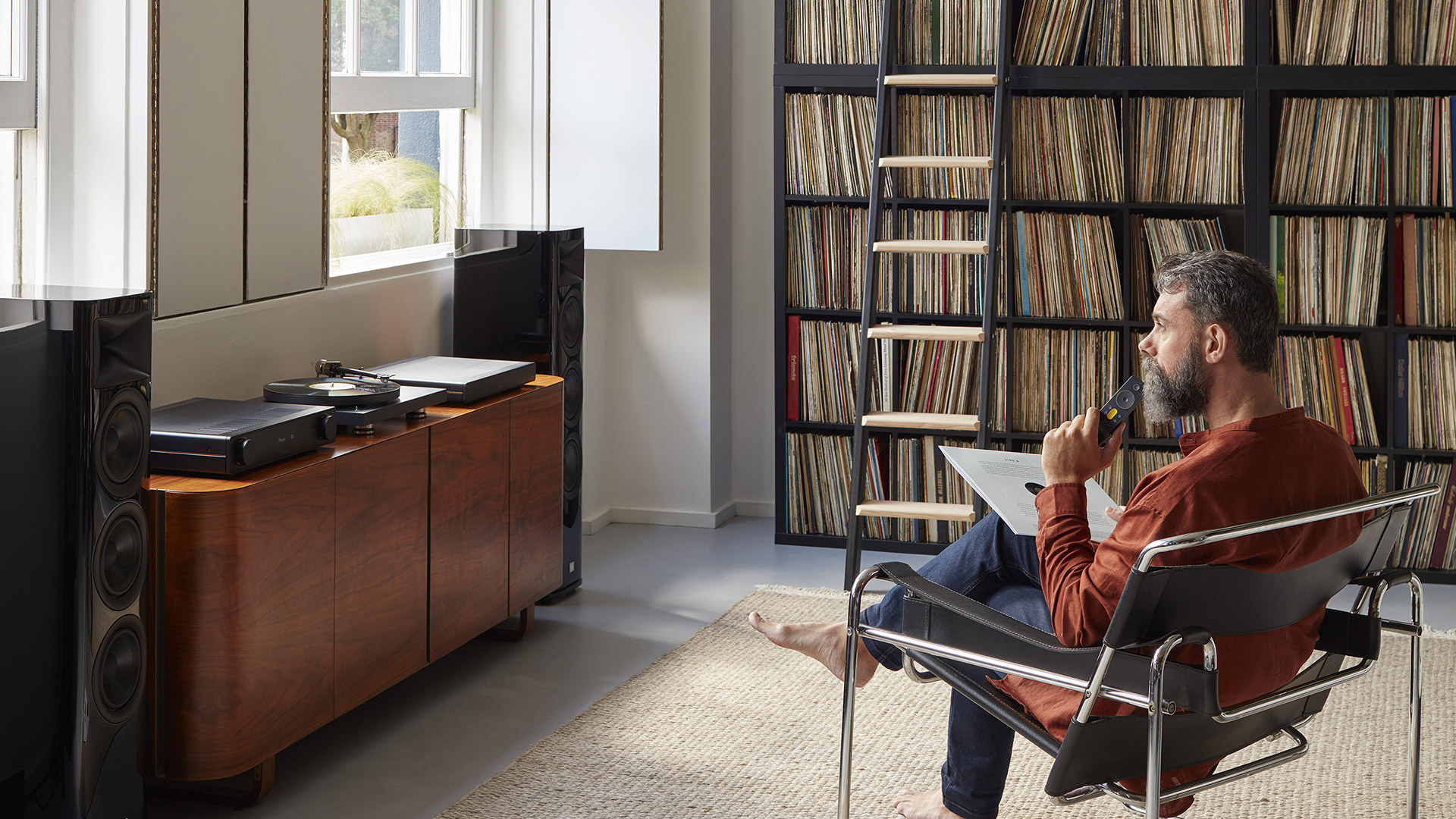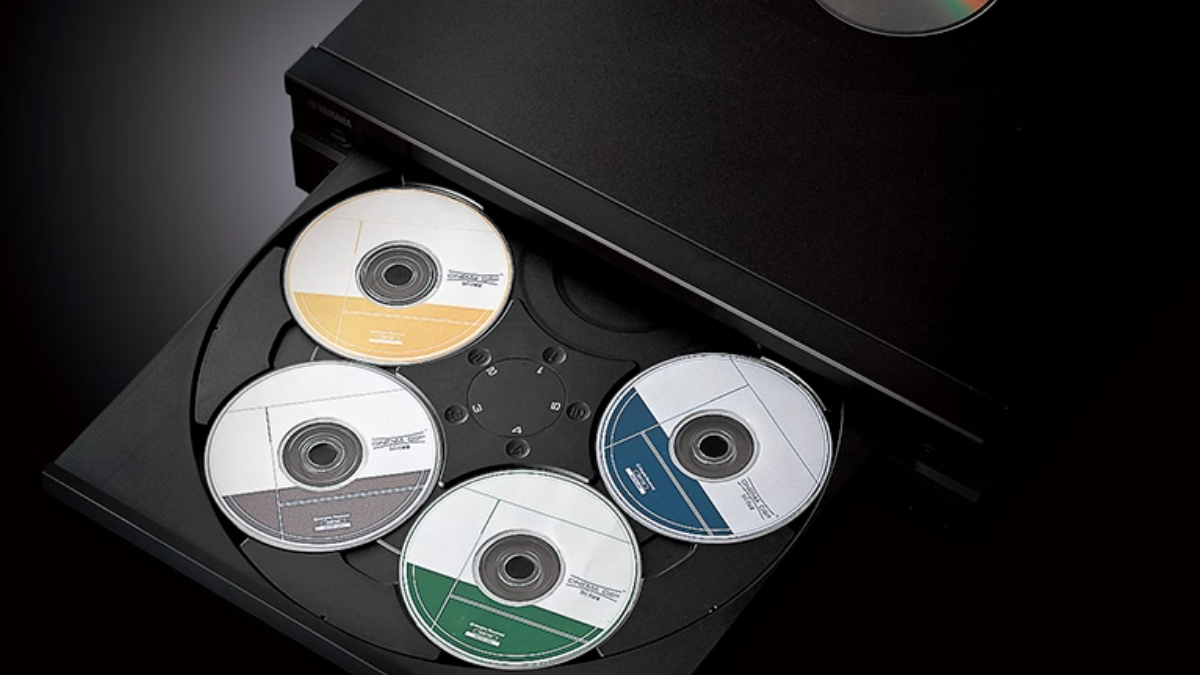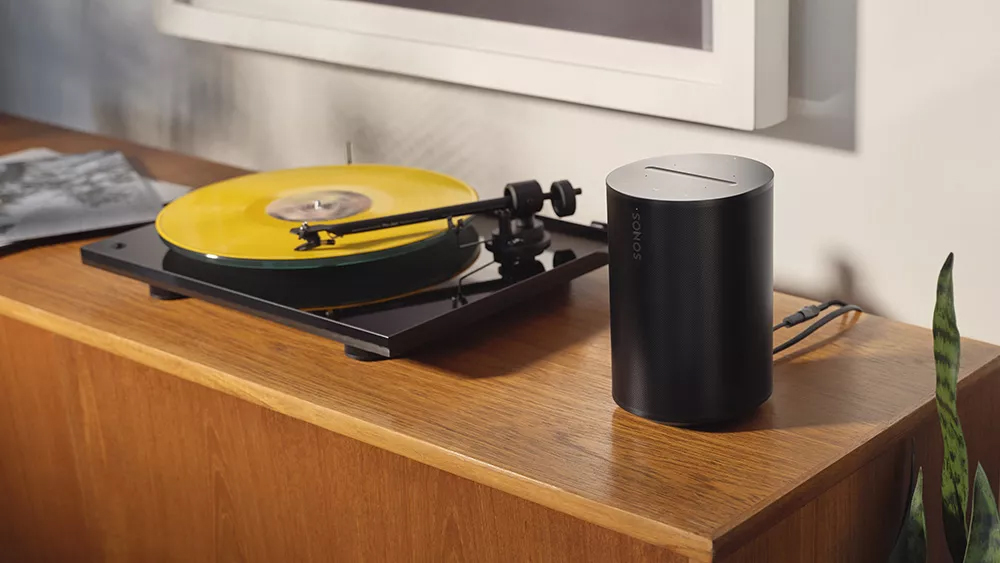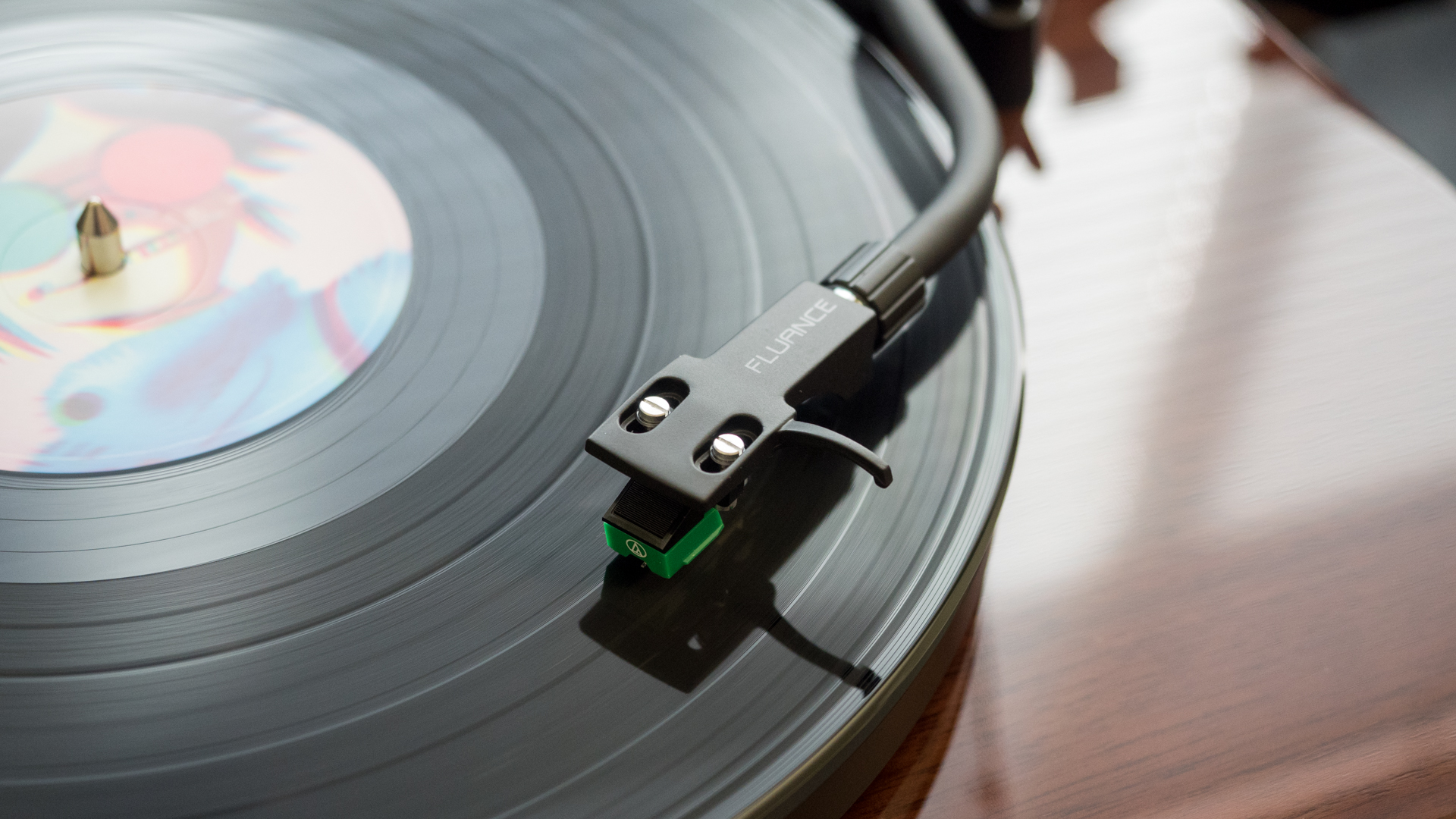Streaming music is broken – here's why it's made me fall in love with vinyl all over again
I've been all-digital for decades, but now I want music I can touch

Sign up for breaking news, reviews, opinion, top tech deals, and more.
You are now subscribed
Your newsletter sign-up was successful
It's 1996 and I'm cursing my internet connection: I'm trying to download a leaked U2 song and so far it's taken me seven hours. The song, I'll later discover, isn't one of U2's best, and when it's finally downloaded it'll have cost me more in connection charges – back then, internet time was charged per-minute – than it would have cost me to buy Bono a house. It also sounds like it was recorded in a shed. But I'm listening to the future.
The future wasn't the song, but the format. It was an MP3, the compressed audio format that promised good-enough sound quality without the massive file sizes of CD-quality tracks. But it didn't matter if you had one of the best MP3 players, it didn't deliver anything of the sort, hence sounding like it was recorded in a shed, but it was convenient. That U2 song was the beginning of my decades-long love affair with digital music, a love affair that I think has run its course.
I still listen to U2. But not as MP3s. This time around I play them on 180gsm vinyl on the very thing I thought digital music would banish forever and that I never thought I'd have in my home again. A turntable.
Why I decided to ditch digital

Streaming has broken music.
First of all, it's ruined the way it sounds: with very few exceptions, the normal paid-for tier of one of the best music streaming services delivers compressed music that simply doesn't sound as good as physical formats. I'm no luddite – I've stood in listening rooms full of high-end digital kit playing hi-res audio that sounded so good I nearly wept with joy – but the sound we get from most streaming is audibly worse than from physical media.
It's also broken many artists' ability to make a living from music. When you can stream pretty much everything ever recorded for less than you'd pay for a single vinyl LP, your streams are almost worthless in terms of what any artist gets paid. When you wince at the cost of your concert ticket or merch, streaming did that.
The streaming era has been very good for the likes of Ed Sheeran and Taylor Swift who can charge obscene amounts of money and still sell out stadia, but it's been a disaster for smaller artists. And it's getting worse: Spotify will no longer pay royalties for two-thirds of its catalog. The next step, surely, is charging artists to be included.
Sign up for breaking news, reviews, opinion, top tech deals, and more.
It's broken ownership too. You don't own streamed music; you rent it. That means you can't be sure it'll be available forever. And every year the streaming landlords ask you to pay more rent.
You can't even rely on keeping things you've bought. This month, Sony told PlayStation owners that it was deleting any shows they'd legally bought from Discovery – without refunds. "Due to our content licensing arrangements with content providers, you will no longer be able to watch any of your previously purchased Discovery content and the content will be removed from your video library."
They can't do that with vinyl, CDs or Blu-rays.
Why I've fallen back in love with physical media

That's the bad stuff. Now let's talk about the good. It's not just the sound. It's the everything else too.
I'd forgotten how much fun music can be. The riffling through the racks looking for treasure. The satisfaction of the last-second eBay bid that leaves rival fans in the dust. The mystery of wondering which specific LP you've just been handed by the postie because you've ordered so many. And most of all, the physicality of it. Not just putting the record on the platter and the needle on the record, but the whole experience that begins with picking a record and taking it from its shelf. When I stream music, if I see the art at all it's an inch-square thumbnail of the front cover. With vinyl, it's much more interesting, on a much bigger canvas. It's an invitation to explore.
It's also much more involving. I was talking to a friend about this today: he's a former professional musician and audio obsessive, and he said that he couldn't remember the last time he actually sat down to listen to music. There's always music around him, but it's always streaming in the background. That's been the same for me, but when I bring out the black (or green, or blue, or...) platters instead of streaming from somewhere the music is getting my full attention. It feels like it somehow matters more, and because I'm listening with my whole self it's much more emotionally affecting too.
Why I didn't want to come back to physical media
There were two things that put me off vinyl. The first is, well, some of the people who wang on about vinyl – and I realise that right now I have become one of those people. But I hope I'm not one of the bad ones, the ones who are incredibly snobby about it all, the kind of guys who get furious at the thought of a young woman wearing a Ramones T-shirt or, like I saw on Reddit the other morning, who go out of their way to make other people feel bad if their hardware or speaker wire choices don't meet their own impossibly high standards. You know the guys.
And the other reason, of course, is that vinyl is hilariously expensive and may need you to buy a whole bunch of new hardware too. My turntable – hardly considered to be one of the most high-end, best turntables – cost around £300. The amp, although pre-owned and older than Spotify, was over £100. The speakers cost another few hundred. And the cost of the hardware is nothing compared to the cost of the records (although if you're on a budget, the reverse is true for CDs).
Albums that bands could barely give away back in the day are now considered classics or rare cuts with price tags to match, and even more mainstream stuff is expensive because all vinyl is expensive now: just recreating my REM collection with today's double-LP heavyweight vinyl reissues is going to cost me more than I'd spend on a car, and it'd be cheaper to buy a helicopter made of diamonds than all the different colored versions of Taylor Swift's LPs.
But even the expense can be a positive thing. When was the last time you really considered your musical choices on a streaming service, having to decide just how keen you really were to hear a particular song again? I've found that the cost of vinyl means I'm thinking a lot more about what records really matter to me, what I love enough to justify the expense of ownership rather than just renting it from the streamers, what music I want to be able to see and touch as well as hear.
Why I'm back in black (vinyl)

I'm not ditching digital media altogether. It's great to have access to all that music, to bore my kids senseless with ancient obscurities on demand. And I can't exactly play vinyl in the car or when I'm on the subway. It's also great to be able to switch artists, albums and genres when I'm prepping food and covered in ingredients. But like the food I'm cooking, convenience isn't the only consideration.
I think streaming (and other forms of digital media, like e-books) is like a fast food drive-through, serving up cheeseburgers that are quick, cheap and convenient. And that's great; it meets a need, satisfies a craving. It fills a hole. But food can be so much more than just fuel, and music can be so much more than Muzak. With physical media, it feels like it is.
You might also like

Contributor
Writer, broadcaster, musician and kitchen gadget obsessive Carrie Marshall has been writing about tech since 1998, contributing sage advice and odd opinions to all kinds of magazines and websites as well as writing more than twenty books. Her latest, a love letter to music titled Small Town Joy, is on sale now. She is the singer in spectacularly obscure Glaswegian rock band Unquiet Mind.